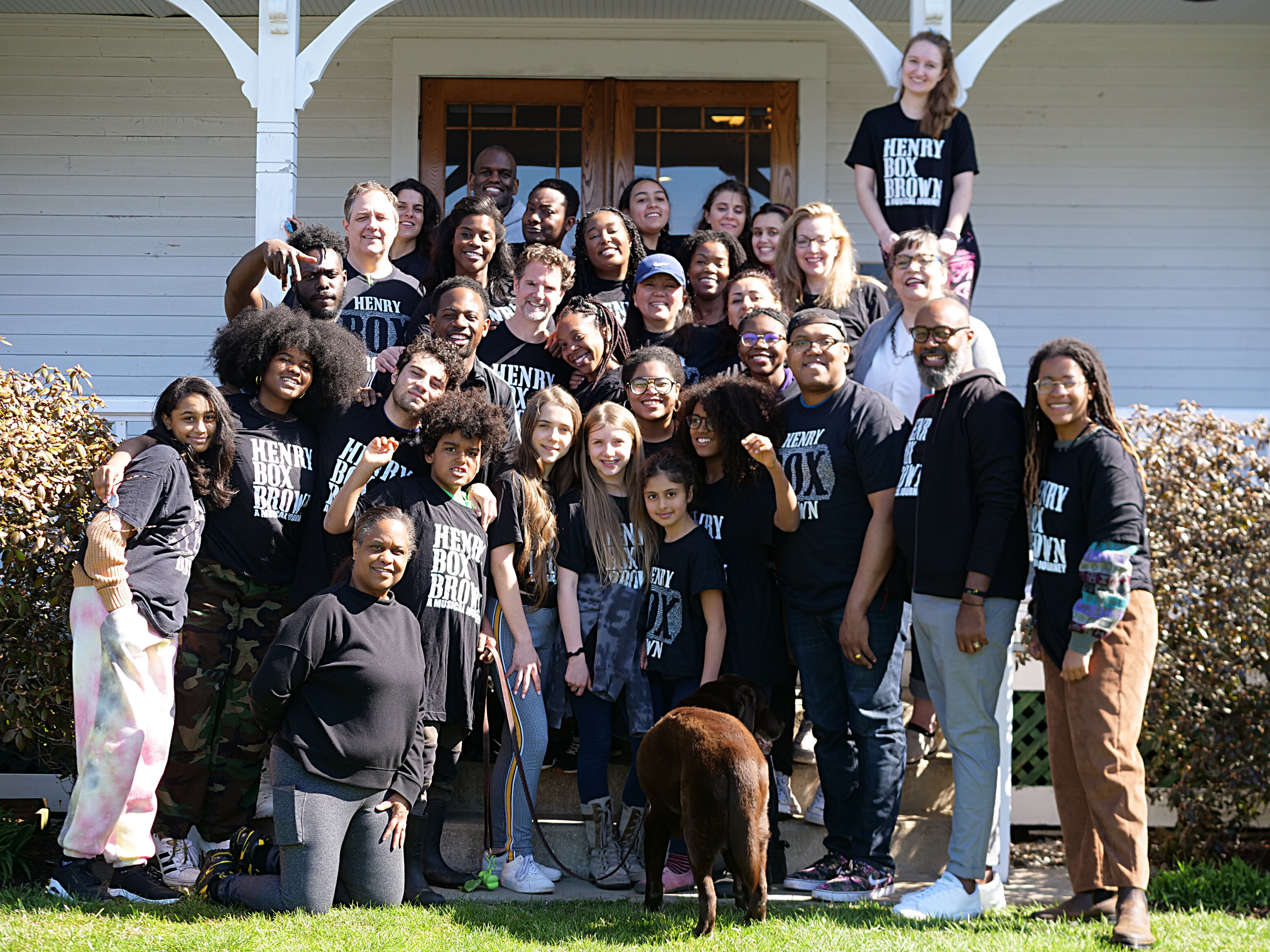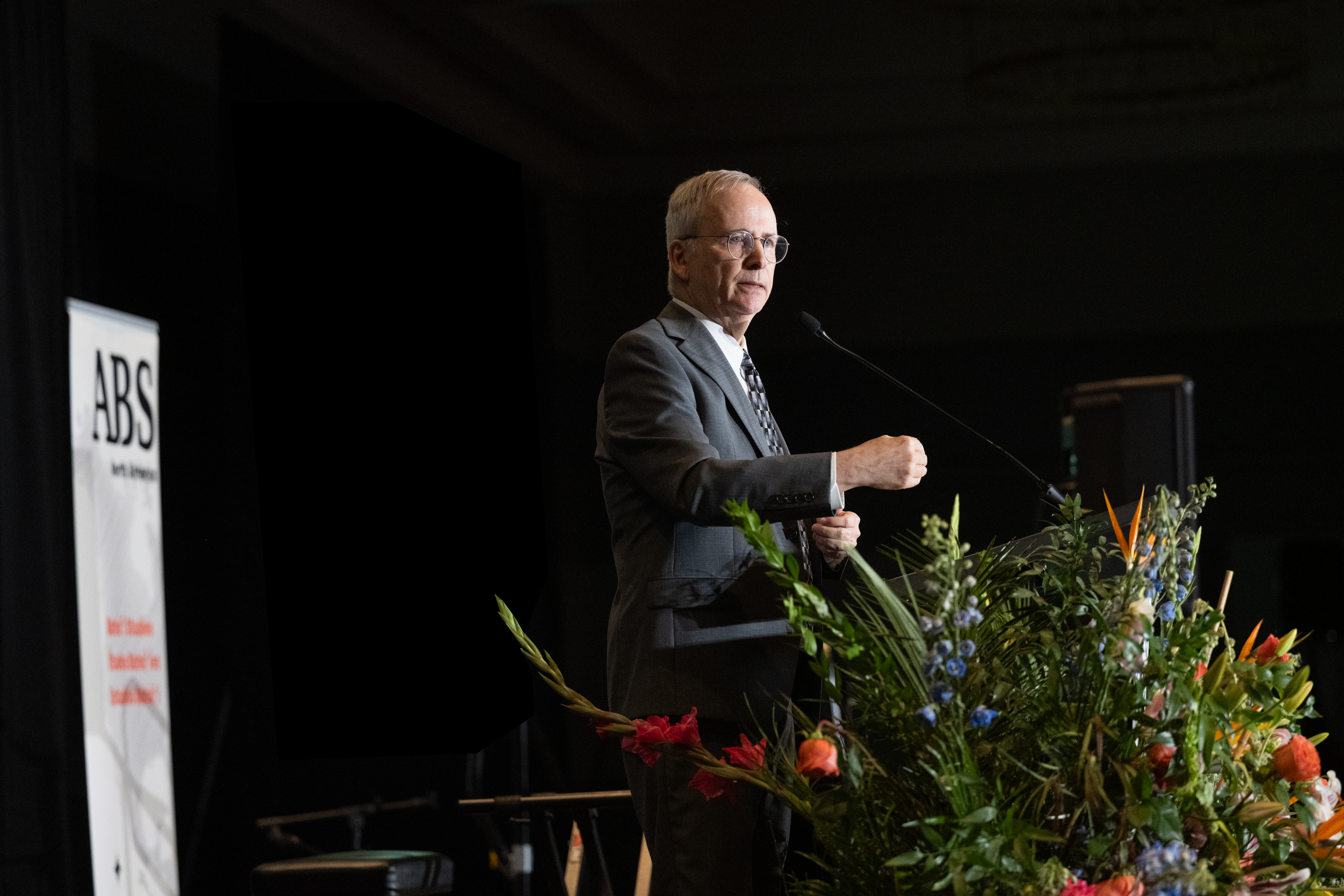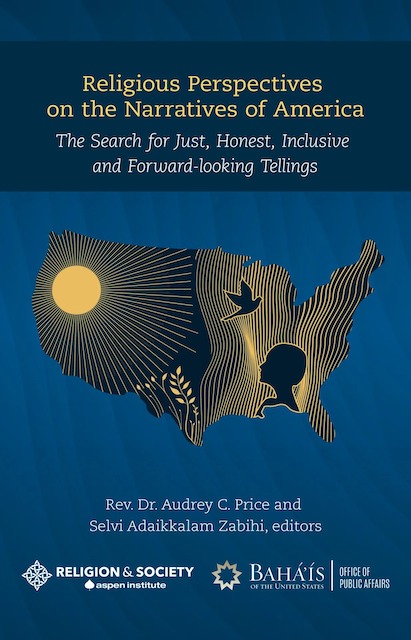
Combining voices: Statement sets a tone for conversations in efforts to overcome racism together
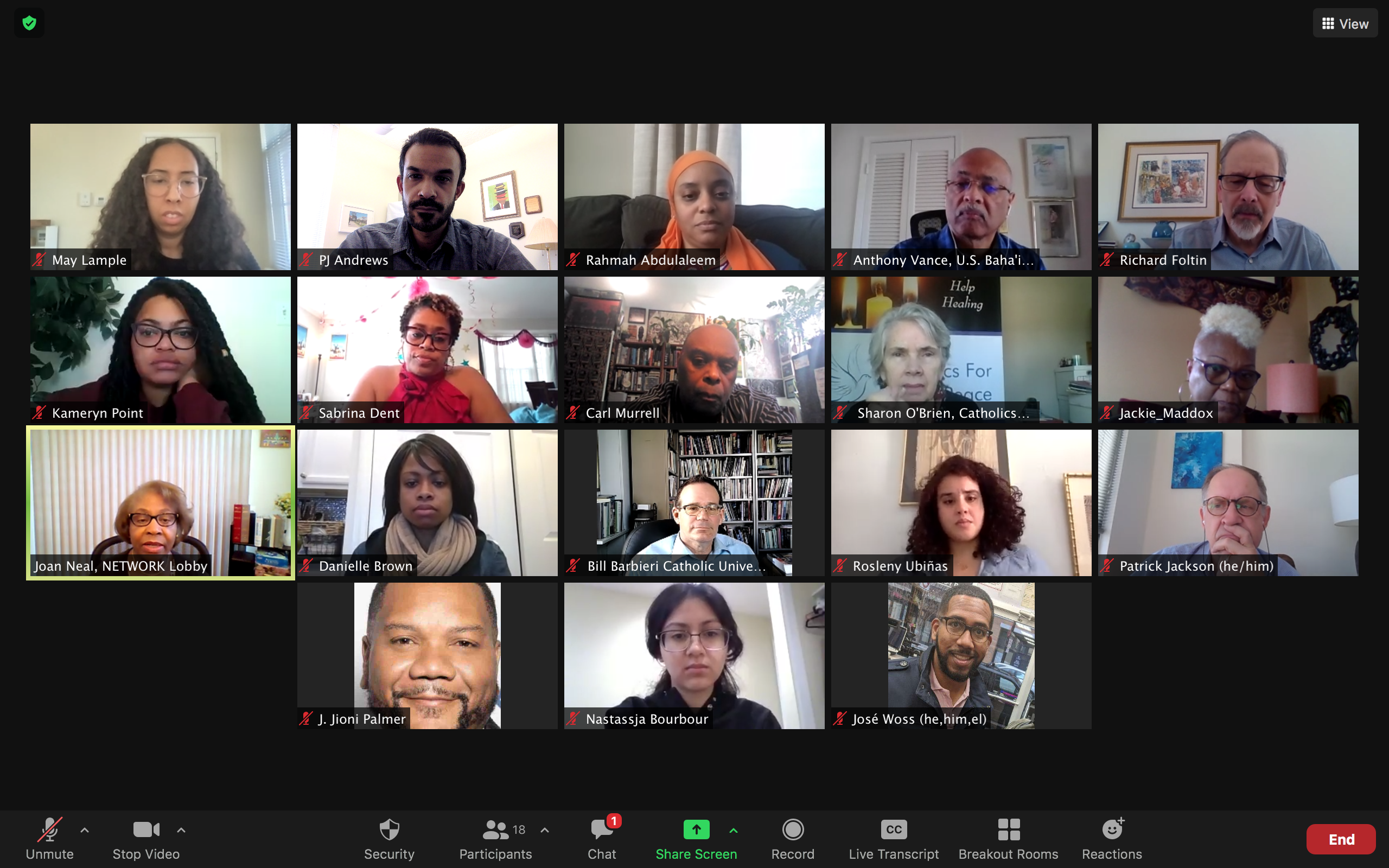
A teaching tool in the effort to overcome racism together
It’s a small but potentially powerful signal in the massive effort to overcome racism in America.
A group representing a diverse spectrum of faith communities and organizations at the national level is building relationships through a quarterly gathering called the Dialogue on Faith and Race. Their quest is to identify universal truths shared across religious traditions and to explore how those truths, used as a constructive force, can be applied to the longstanding efforts to overcome racism in the United States — as a part of the journey of helping the world recognize that humanity is essentially one as created by one God.
Their united voice is reflected in the statement “Overcoming Racism: The Role of Religion and Faith Communities,” released this past July. (Download here)
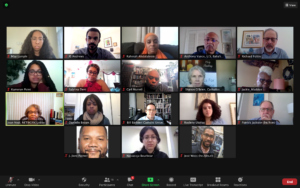
And several partners in this national-level dialogue say the statement can further extend what this national group has learned together, especially if it stimulates conversations in other spaces. In fact, creative ideas for how to share the statement with a broad public began forming even as the dialogue group was reviewing the document last summer.
Sabrina Dent, president of the Center for Faith, Justice and Reconciliation, was already helping plan a gathering on the theme “Reimagining Religious Freedom: Rights, Responsibilities, Respect.” She soon invited PJ Andrews, a race discourse officer for the national Baha’i Office of Public Affairs (OPA), to offer a presentation on the statement and the dialogue that produced it as part of a panel discussion.
And Dent expects to keep using the statement as a “discussion piece” in additional high-level gatherings. “We need to have more of these discussions that lead to understanding, that then lead to people coming together to take action,” she says.
The statement can also give local congregations and interfaith groups a basis for their own conversations on racial justice and healing, says Richard Foltin, who does educational work with the Freedom Forum and the Inter Jewish Muslim Alliance.
He has helped foster many interfaith dialogues on issues of common concern, not only in his current work but also in earlier decades with the American Jewish Committee. In utilizing the statement local groups will, Foltin says, “inevitably not just be reading the product of the larger group, but will themselves be having their own dialogue.” He sees particular value in the “Overcoming Racism” statement as a helpful “jumping-off point” for “learning about the history of the intersection of faith and racism, for both good and bad, and responding by applying the values in one’s faith teachings as a force for good.”
Andrews says it’s fair to ask: what benefit can talk have in dissolving the baneful and persistent evil of systemic racism? He points out that racism in America has its own roots in the use of language — especially the way religious thought has been warped to divide people and lead them to hurtful action. By the same token, focused and honest discourses also have a role in leading people toward a more unified attitude.
That is one reason OPA partnered with agencies of the Catholic University of America to begin organizing the Dialogue on Faith and Race around 2016. Held every three months in person or on Zoom, this Washington, DC-based discussion space includes people from many backgrounds. It offers opportunities to reflect and share experiences on how religious principles can bring people together in a common, positive purpose.
Therefore the dialogue is carried out in the spirit of building capacity: “learning about how to bring people together” to talk honestly about challenging issues in a “spiritually uplifting environment,” and to “find precious points of unity so that collective action can be taken,” Andrews says.
One of OPA’s motivations for this dialogue is to apply Baha’i teachings “to support the endeavors of others that are doing good in society,” says Mat Cotton, also a race discourse officer.
After all, for over a century Baha’is have been venturing to build bridges in society to dissolve injustice and racial barriers, as well as working to apply the Faith’s unifying teachings in their own communities. Lessons learned from these experiences can be a great source of inspiration, insight and encouragement, Cotton says, and ”when the Baha’i community is in a position to offer that to others, it should.”
As insights and principles emerged from the Dialogue on Faith and Race, a desire grew to share them more widely, says Andrews: “What would it look like to have a multifaith statement on the role of the faith community in overcoming racism? That’s a powerful idea at a moment when we’re seen as so separate and different from each other.”
With that in mind, in early 2022 the race discourse officers put together a framework of ideas for the “Overcoming Racism” statement. Some of the concepts were drawn from a July 22, 2020, message from the Universal House of Justice that re-emphasized the importance of racial justice and reconciliation for Baha’is in the United States.
From there, small groups within the Dialogue on Faith and Race wrote and rewrote a series of drafts, each of which was examined by the larger group, until all agreed on the language in the five-paragraph statement.
“This is not any form of religious instruction, this is not to tell anyone how to be or who to be. These are just some universal principles that seem relevant,” Andrews says. “How do these principles apply to your reality?”
Much of its strength flows from being firmly connected with faith principles as expressed in the Dialogue. “My spirituality and my belief in God … it’s a part of who I am,” says Lauren Bladen-White, a participant with a Baptist upbringing and 20 years’ experience with a Quaker organization, currently working with the Open Society Foundations, a global peace and justice organization. Talking from one’s beliefs “can have a very profound effect on how we move forward,” she says.
An idea in the statement that is particularly powerful to Rahmah Abdulaleem, executive director of KARAMAH: Muslim Women Lawyers for Human Rights, is that building justice requires universal participation rather than relying on individual champions. “Bringing the center of the conversation back to everyone having this basic human right [to participate in building justice] is central to the discussion,” she says.
Race and faith are sensitive enough topics in themselves, Dent notes. So when people venture to talk about both at the same time, it’s essential to establish respect for each other’s backgrounds and thoughts, and a statement expressing common ground can help. “To be able to come into this space authentically as myself and say ‘This is what I see and what I’m experiencing, and this is what I hope for, and what I’m doing to contribute to that change’ is a beautiful thing,” she says.
And while some degree of struggle is inherent in the work to defend victims of structural racism or antisemitism, Foltin notes, the “Overcoming Racism” statement offers “a vision of hope rather than a vision of eternal conflict.”
“It is important to recognize that we’re in this together,” Foltin adds, “and that all faith-based forces have a responsibility to work together to build a society that is, in the words of the statement, ‘grounded in a shared, inclusive, realistic, yet aspirational understanding of the American story.’”


